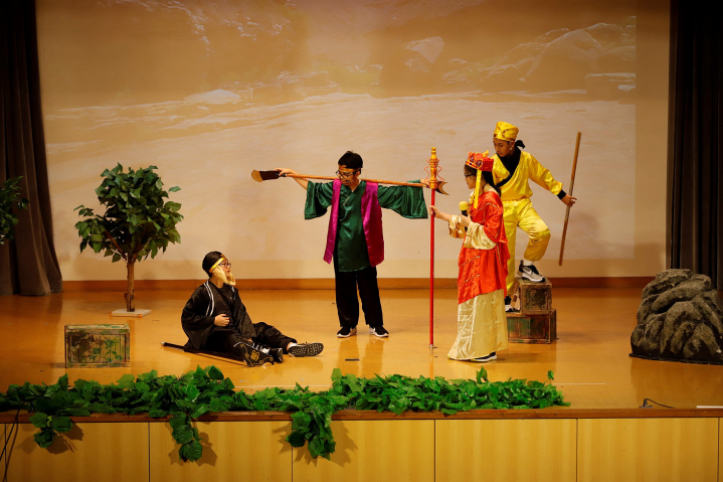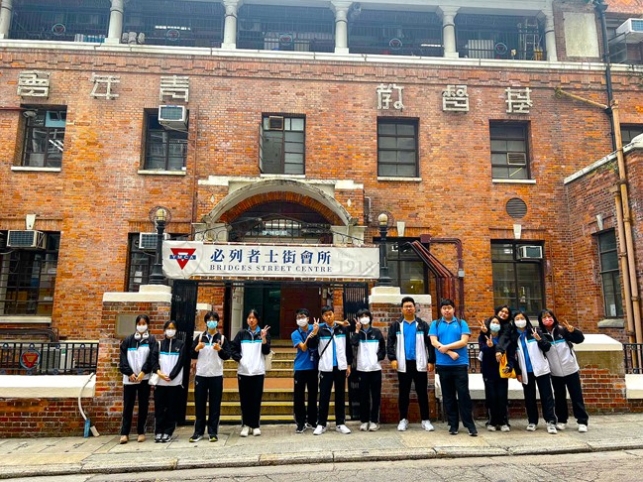In order an effort to promote traditional Chinese culture, the Chinese YMCA of Hong Kong, in collaboration with Macao YMCA, Guangzhou Suigang'ao Teenagers Institute, and the Teacher Chang Foundation of Taiwan, has conducted a survey on teens measuring their cultural awareness. They found that Hong Kong youths generally identify with and support the values of traditional Chinese culture.
The study aims to understand the extent to which teens identify with traditional Chinese culture and the results were recently presented at the Guangdong-Hong Kong-Macao Greater Bay Area Youth Cooperation and Development Forum in Guangzhou, China.
The survey was conducted between May and June of 2023, interviewing 968 high school and junior college students. The results showed that the respondents generally agree with the core values of traditional Chinese culture.
For example, 75.1% of all participants agreed or strongly agreed with the ancient teaching “If you are poor, do good for yourself; If you are rich, do good for the world (穷则独善其身,达则兼济天下).” The proverb emphasizes the importance of maintaining personal morality and social responsibility according to different circumstances. On the other hand, the saying "Among the three forms of unfilial behavior, the greatest is not having children (不孝有三,无后为大)" had only 23.5% agreement rates with 54.6% of respondents disagreeing. This indicates that some youths do not regard passing down the family name as a traditional filial duty.
On another topic, 55.1% of respondents agreed that “the rise and fall of the nation is the responsibility of every man (国家兴亡,匹夫有责)”, and 77.9% support the concept of “The world belongs to the public, and the world should be in harmony (天下为公、天下大同)”. This shows a strong sense of responsibility towards their country and society.
The survey also covered their views on traditional Chinese medicine (TCM) and traditional Chinese garments. Around 60% of respondents said they had consulted TCM for their sicknesses, showcasing TCM’s popularity amongst the youth. Additionally, about 20% of respondents have worn traditional Chinese garments, and 40% say they like the culture.
In terms of preferred methods to learn about traditional Chinese culture, most respondents reported they like to participate in experimental events outside the classroom. The top three choices were visiting museums and cultural infrastructures (57.3%), participating in themed school events (50.5%), and study tours (48.9%).
Based on the survey results, the YMCA advised the Education Bureau of Hong Kong to encourage local Hong Kong teens to join mainland exchange tours and look for suitable local opportunities and learning venues. This will allow students to engage more practically in learning about Chinese culture.
So far, the YMCA has already launched the “Bridges Street Centre- A Cultural Journey through Literary and Historical Scenes” tour, which allows students to learn about local historical sites and broadens their horizons of literature and history through interactive learning.
In addition, the YMCA advocates for a closer partnership between parents and schools to create an environment that promotes a holistic understanding of traditional Chinese culture among young people. The YMCA is giving its everything to pass on the Chinese culture, including organizing cross-curricular activities based on the theme of Journey to the West, Cantonese Opera workshops, and setting up a Tea Room for non-Chinese speaking students to experience the charm of Chinese culture through learning the art of tea. The YMCA also organizes several Mainland exchange tours to help Hong Kong teens understand the cultural background and history of the Greater Bay Area and Mainland China.









